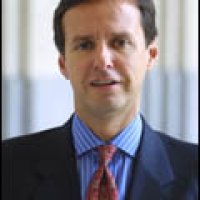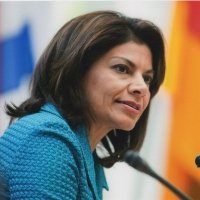Latin America in the Face of a Socioeconomic Crisis
The COVID-19 pandemic struck Latin America more harshly than many other regions of the world. Recently, however, vaccination rates and supplies in Latin America have dramatically increased. The region is now beginning to catch up to the rest of the world, and they are seeing a clearer path towards ending the pandemic. Nevertheless, the region has been carrying social and economic crises, social uprisings, and a never-ending political division. This panel will bring together former heads of state from Latin America for a timely discussion on how the region has handled these issues and what is to be expected in the near future.
This event took place as part of the Concordia Annual Summit.
Selected Quotes
Ambassador Mark Green
“The last year has seen not one challenge, but a wave of challenges, a set of challenges affecting us in the Americas. There have been the public health challenges that come, of course, with the pandemic, [an] economic fallout coming from the pandemic. But also, and perhaps more importantly, governing challenges coming out of the pandemic. Some have argued that authoritarians have taken the opportunity to expand their power. Others would say that really what the pandemic has done is shaken people’s faith in democracy.”
Jorge Quiroga
“I would summarize the state of democracy in the following way, […] we have three triplets. The first triplets are the three giant countries that seem somewhat detached and enmeshed in their own issues, [the] U.S., Brazil, and Mexico. The second triples are puppet regimes, where the head of state is subjected to the political whims of a boss that is more powerful: Peru, my country Bolivia, and probably Argentina, where you have in Peru Castillo, subjected to Mr. Cerrón and his Marxist agenda, [in] Argentina the president is Alberto Fernandez, but the power lies in the vice president Cristina [Fernández de] Kirchner, and in my country, where Arce is nominally the president but Evo Morales runs things. And then the last triplets, the three sleeping giants: […]Venezuela, Cuba, and Nicaragua.”
“In Nicaragua, democracy is going to die in broad daylight, while we are watching, and no one seems to be doing what needs to be done to stop the coronation of this dictatorial dynasty in the next six weeks.”
“COVID-19 provided the opportunity to put in place extraordinary measures. […] The danger comes in non-mature democracies where those extraordinary powers can be abused and that’s what we have seen.”
“We need a [COVID-19] policy agenda, and it seems like the countries that can drive this agenda looking at vaccines, looking at the money, looking at energy, looking at new integration, seem to be somewhat distracted again […] in their own issues and in the meantime, democracy is eroding and we are not providing the right answers for the pandemic.”
Laura Chinchilla
“[In Latin America] we wake up every day counting democracies of less quality. And that is in every possible index we can read right now.”
“Now that we have the new electoral cycle, which already started, probably what we will see is more people voting as an act of revenge against those that are in government now. And that means something really bad because people are not going to vote based on the right kind of rationale but more based on emotion and we could end up with more kinds of populist leaders. So, these results could be even worse than the situation we have today in terms of democracy.”
“The kind of migration that you have now coming from the Latin American countries is because of three reasons: political reasons, economic reasons, and climate change reasons. So, that means that you have to put in place different kinds of policies, more integral approaches to the problems that we have, and I’m not sure if Washington is understanding this. Secondly, the United States has to play a role beyond mobilizing their own agency and try to convene the most important regional and international organizations that are working in Latin America. Only both together can bring the kind of agenda and change that we are demanding right now.”
Speakers


President of Bolivia (2001-2002)
